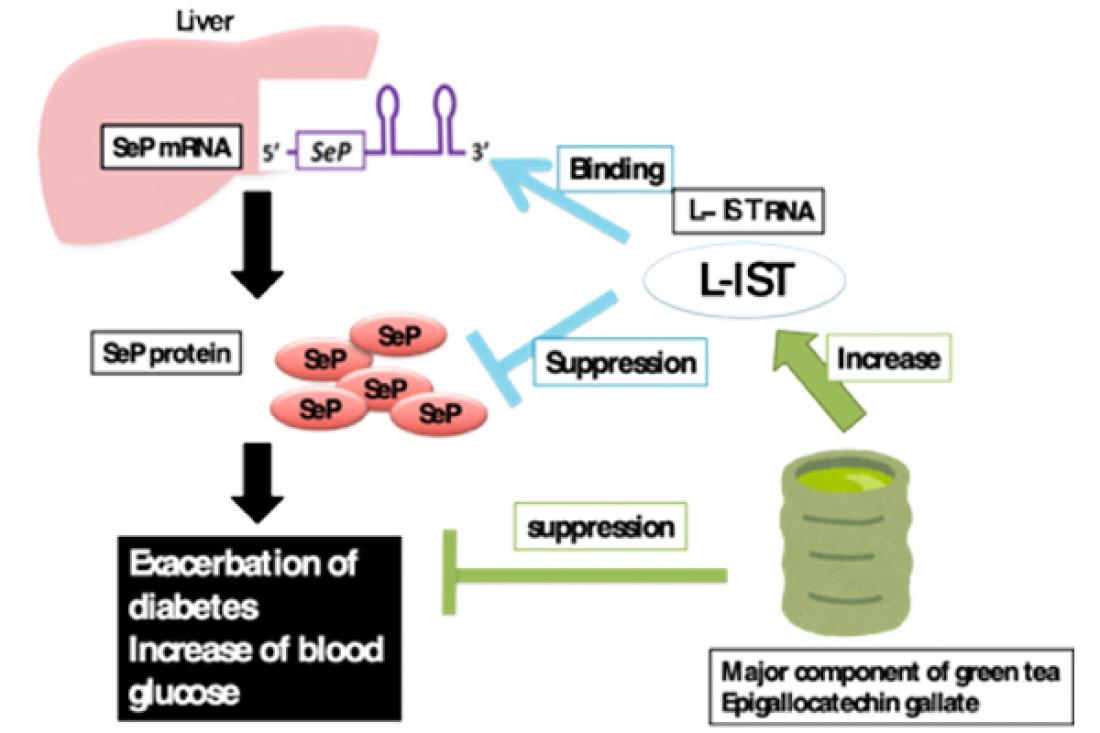A schematic of the discovery. Selenoprotein P (SeP), which is synthesized and secreted by the liver worsens diabetes when it is in excess. The novel gene "L-IST" binds to SeP mRNA and suppresses the synthesis of SeP protein. Additionally, epigallocatechin gallate, a major component of green tea and known to have a preventive effect on diabetes, increases L-IST and lowers SeP protein.
Across the world, type 2 diabetes is on the rise. A research group has discovered a new gene that may hold the key to preventing and treating lifestyle related diseases such as type 2 diabetes.
The results of their research were published in the journal Nucleic Acids Research on June 18, 2021.
Selenoprotein P (SeP) is an essential plasma protein containing the micronutrient selenium. However, too much SeP spells trouble.
Excess SeP increases insulin resistance, thus weakening the effect of insulin, and worsening the metabolism of glucose.
"Excess SeP is the enemy when it comes to type 2 diabetes," stressed professor Yoshiro Saito from the Graduate School of Pharmaceutical Sciences at Tohoku University and co-author of the study. "Regulating healthy SeP levels is vital for maintaining our health."
Saito, along with assistant professor Yuichiro Mita from the Graduate School of Life and Medical Sciences at Doshisha University discovered gene "CCDC152." The gene, which has a similar structure to that of SeP, acts as an RNA that lowers the SeP protein.
Because of this, CCDC152 was named Long Non-coding RNA-Inhibitor of Selenoprotein P Translation (L-IST).
Their study also revealed that epigallocatechin gallate (EGCG), a plant based antioxidant commonly found in green tea, can increase L-IST.
Looking ahead, the researchers believe EGCG supplements can help diabetic patients with high SeP levels. "Overall, our findings have opened up new avenues to explore in the prevention and treatment of lifestyle-related diseases," added Saito.
Contact:
Yoshiro Saito
Laboratory of Molecular Biology and Metabolism,
Graduate School of Pharmaceutical Sciences, Tohoku University
Email: yoshiro.saito.a8@tohoku.ac.jp



